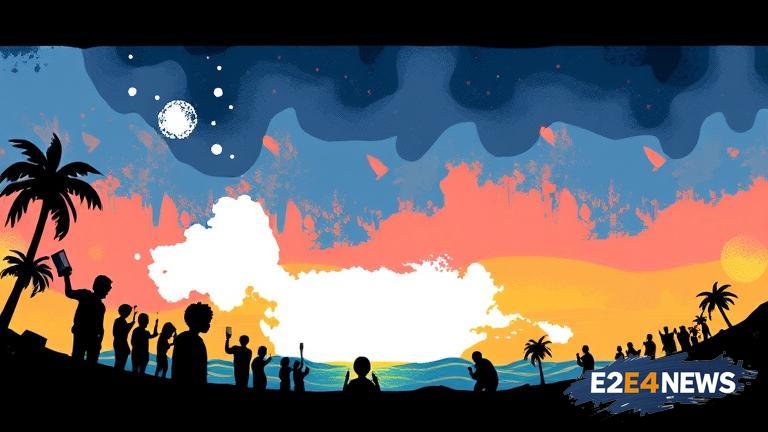The Pacific region is on the frontline of climate change, with rising sea levels, intense storms, and droughts threatening the very existence of island nations. The impact of climate change on Pacific kids is a pressing concern, as they face a future of uncertainty and vulnerability. Climate change is not just an environmental issue, but a human rights issue, with the region’s children bearing the brunt of its effects. The Pacific Islands are among the most vulnerable countries to climate change, with many facing the risk of disappearing altogether. The region’s children are already experiencing the impacts of climate change, from increased food insecurity to decreased access to education and healthcare. The psychological toll of climate change on Pacific kids should not be underestimated, with many experiencing anxiety, fear, and trauma. The Pacific region is home to some of the most beautiful and diverse ecosystems on the planet, but climate change is threatening the very survival of these ecosystems. Coral bleaching, ocean acidification, and sea-level rise are just some of the ways in which climate change is impacting the region’s marine ecosystems. The economic impacts of climate change on Pacific Island nations are also significant, with many facing significant losses to their economies and infrastructure. The region’s children are not just victims of climate change, but also powerful agents of change. Many Pacific kids are already taking action to address climate change, from organizing protests to implementing sustainable practices in their communities. However, more needs to be done to support the region’s children and ensure their voices are heard. Governments, international organizations, and civil society must work together to provide Pacific kids with the support and resources they need to address climate change. This includes investing in climate-resilient infrastructure, promoting sustainable development, and providing education and training on climate change mitigation and adaptation. The international community has a moral obligation to support the Pacific region in its efforts to address climate change. The region’s children are not just fighting for their own future, but for the future of the planet. Climate change is a global problem that requires a global response, and the Pacific region is playing a critical role in this effort. The region’s children are inspiring a new generation of climate leaders, and their voices must be heard. The time for action is now, and the international community must work together to address the urgent threat of climate change. The future of the Pacific region and its children depends on it. The region’s children are the future, and it is our responsibility to ensure they have a safe and sustainable future. Climate change is a ticking time bomb, and the Pacific region is already feeling the effects. The region’s children are the canary in the coal mine, and their experiences should serve as a warning to the rest of the world. The Pacific region is not just a victim of climate change, but also a leader in the global effort to address it. The region’s children are at the forefront of this effort, and their voices must be heard.
